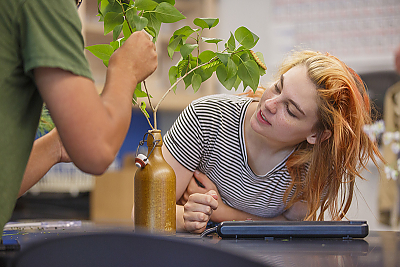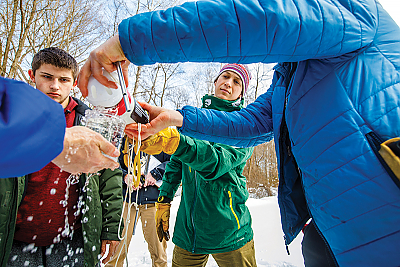The rigor of the scientific method in the context of Landmark College’s innovative teaching methods.
The Bachelor of Science in Life Science degree at Landmark College includes knowledge areas related to ecology, organismal and sub-organismal biology, natural resource management, data-driven decision making, and a strong foundation for the public health sector.
Students will engage in experiential opportunities to enrich professional behaviors, enhance collaboration, and develop and maintain large scale projects.
We encourage students to critically evaluate concepts and ideas using scientific evidence that will prepare them to become informed and productive members of society.
The B.S. in Life Science degree is an extension of the College’s current A.S. in Life Science degree.
Both degrees offer two tracks of study:
- Life Science
- Environmental Biology


